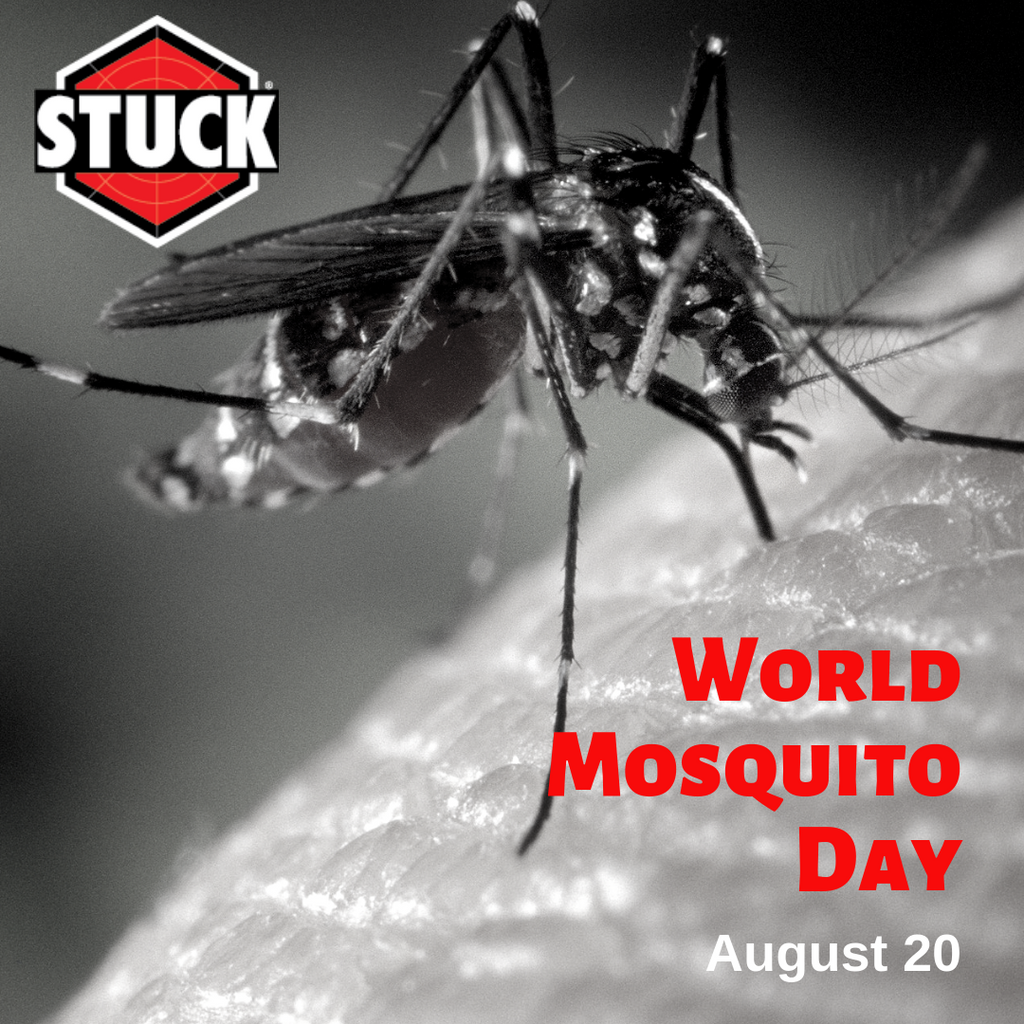STUCK Blog / stuck brands
World Mosquito Day and Vector Control
World Mosquito Day, held on August 20th, is a day set in commemoration of doctor Sir Ronald Ross. In 1897, Sir Ronald Ross had discovered that female mosquitoes are the culprit of transmitting malaria between humans. Shortly after this discovery, Sir Ronald Ross declared the annual observance of World Mosquito Day.
For two decades, Ross, and other doctors from various countries, researched malaria transmission and the effects on human biology. Ross has come to discover, and prove, in 1897 that Anopheles mosquitoes would be the culprit carrier of Malaria. Ross had also noted that practical measures could help prevent mosquito bites and control the mosquito population; this is known as vector control.
The Importance of Vector Control
Mosquitoes cause risk to human health. Being the number one deadliest creature, mosquitoes have the capability of transmitting various diseases, such as: Dengue Fever, Yellow Fever, Chikungunya, Zika Virus, West Nile Virus and Malaria. The vector potential of mosquitoes comes from the female mosquito (due to it's bloodsucking nature). A female mosquito must first infect itself by sucking blood from it's source before transmitting disease to another victim; because of this, the mosquito must be controlled.
Mosquito-Borne Illnesses and Mosquito Control

Image Source: www.rentokil.com
With 3.2 billion people at risk of Malaria, the need for mosquito control is at an all time high. North America, as you can see on the above image, has roughly 30,000 cases of West Nile Virus per year. South East Asia and many tropical areas are more susceptible to Malaria, which has about 207 million cases per year.
With the expansion of urbanization, climate change, and current agricultural practices, mosquitoes and mosquito-borne illnesses are increasing rapidly. Let's take a look at how we can prevent mosquitoes in our area.
Preventing Mosquito Bites
Other than being annoying an itchy, mosquito bites can spread viruses, cause disease, and make you sick. Mosquitoes bite during the day and night, live indoors and outdoors, and like to breed near stagnant water. Read the 10 Common Mosquito Breeding Sites Around Your Home >>
So, what can you do to help prevent these bites?
1. Use Insect Repellent. The CDC recommends using an EPA-registered insect reppelent that has one of the following active ingredients: DEET, Picardin, IR3535, Oil of Lemon Eucalyptus, Para-Menthane-Diol, 2-undecanone.
2. Cover Up. When hiking and being outdoors for extended periods of time, try wearing long-sleeved shirt and long pants.
3. Keep Mosquitoes Outside. Use air conditioning, window screens, and door screens. If this is something you can't do, try sleeping under a mosquito bed net.
4. Use Mosquito Traps. The STUCK Mosquito Traps are designed to attract female and male mosquitoes to a stagnant water source. They find our traps to be the perfect environment for shelter or to deposit eggs. Our traps are simple, effective and easy-to-use. The trap operates without the use of pesticides, harmful chemicals, or electricity. Simply put, we've created something that mosquitoes are naturally attracted to, so all you have to do is add water and let the trap do the work.
Sources
https://www.malarianomore.org.uk/world-mosquito-day
https://www.gov.uk/government/news/world-mosquito-day-2010
https://www.pmi.gov/news/all/news-full-view/world-mosquito-day---2016
https://www.cdc.gov/chikungunya/pdfs/fs_mosquito_bite_prevention_us.pdf
https://www.rentokil.com/events/world-mosquito-day/

